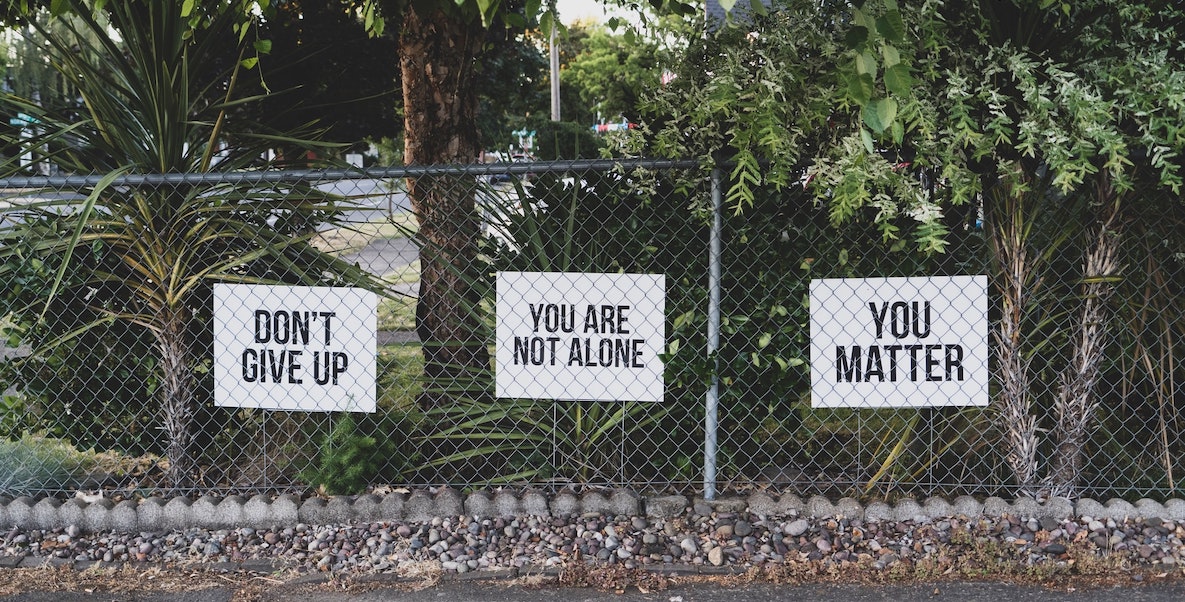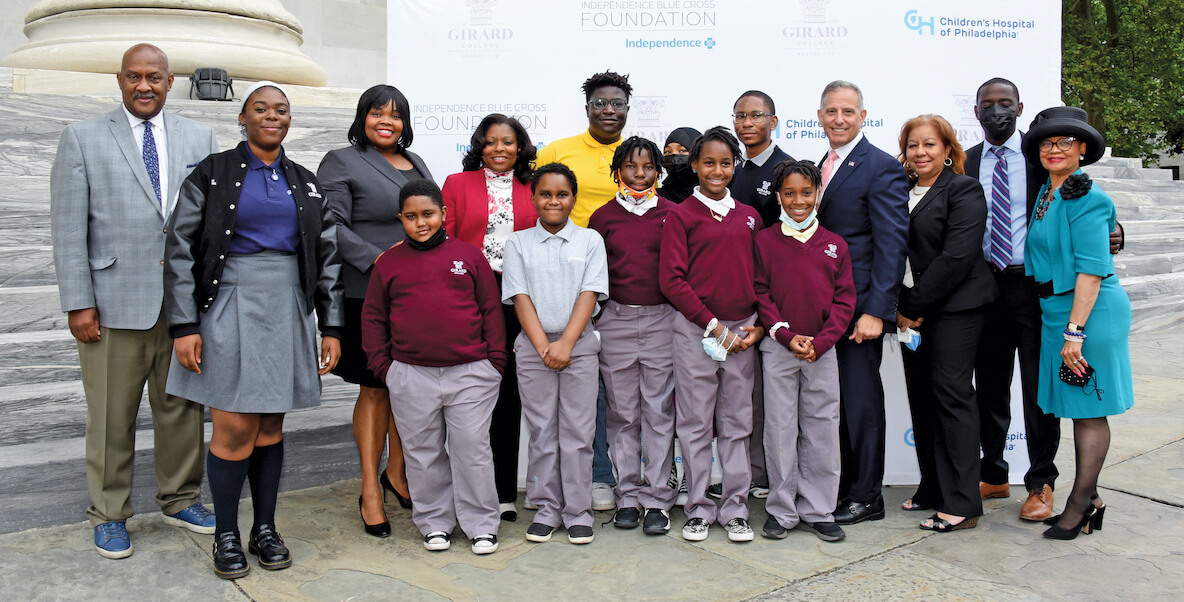In December 2022, U.S. Surgeon General Vivek Murthy issued a staggering 53-page report warning that “the challenges today’s generation of young people face are unprecedented and uniquely hard to navigate. And the effect these challenges have had on their mental health is devastating.”
According to the report, emergency room visits for suicide attempts rose 51 percent for adolescent girls in early 2021 compared to the same period in 2019; symptoms of anxiety and depression in both girls and boys doubled during the pandemic. Early estimates from the National Center for Health Statistics suggest there were more than 6,600 deaths by suicide among the 10 to 24 age group in 2020.
Mental health issues were already on the rise prior to the pandemic: Emergency room visits related to depression, anxiety and similar conditions were up 28 percent between 2011 and 2015. And of the 7.7 million children with treatable mental health disorders in 2016, about half did not receive adequate treatment.
“The pandemic compounded our country’s youth mental health crisis because of the disruption of young people’s routines, the disruption of being with their friends and doing activities that they love, and the disruption of access to care.” — Dr. Cagande
Compounding the need for help are the pervasive barriers to actually getting it: months-long wait lists to see mental health providers; not enough providers who accept insurance; a lack of providers of color, or those trained in trauma-informed care.
In Philly, where so many young people live in communities plagued by poverty, the opioid crisis, and gun violence, the need for care is critical. As former Philly Mayor Michael Nutter said at our recent Ideas We Should Steal Festival, when a murder occurs in our neighborhoods, washing the blood from the street doesn’t erase it from a community’s—or a child’s—psyche.
But there are solutions out there that are proving to make a difference—including, as it turns out, one of the most innovative programs right here in Philadelphia. Based on an evidenced-based model called “integrated behavioral health,” the program is a collaboration between Girard College and Children’s Hospital of Philadelphia (CHOP), funded by The Independence Blue Cross Foundation. The Foundation has provided $300,000 to kick off year one of the pilot, with additional funding forthcoming beyond that.
The multi-year initiative, which will provide access to mental health care for all 258 students at Girard College, combines telehealth services from CHOP—which provides the school with access to a dedicated psychiatrist, psychologist and licensed clinical social worker (LCSW)—with school-based support for students from the school’s two behavior specialists and two LCSWs on staff.
Bringing mental health care to children where they are
Integrated behavioral health brings mental health into a mainstream health care setting, like your primary care doctor’s office: Let’s say, for example, you go to your doctor because you’re experiencing migraines. While there, you’ll also get screened for mental health conditions through a standardized questionnaire. If you’re “positive” on the evaluation, you’ll be able to see an onsite psychologist or social worker to triage your mental health care right then, including by consulting with an on-call psychiatrist—all while keeping your primary care doctor apprised of what’s going on.
It’s an innovative approach to mental health care that (1) fast-tracks patients to care at a time when waitlists can otherwise be months’ long; (2) maximizes busy psychiatrists’ time by letting them offer guidance to the on-site social worker without spending a full hour meeting with the patient directly; (3) seamlessly weaves in your primary care doctor, who should be serving as your healthcare “quarterback” anyway; and (4) removes the costly burden of visiting a private practice psychiatrist or psychologist.
The model has been a success. Peer-reviewed articles laud its effectiveness, scalability and economy, noting that “behavioral health services integrated into primary care can improve care coordination and interdisciplinary collaboration, decrease stigma and increase treatment engagement”—and it’s increasingly popular at CHOP: It’s currently in 15 of CHOP’s 31 primary care practices throughout the region, with plans to expand to at least four additional practices per year over the next three years.
Children who receive care at these offices are now screened during their annual well-child visits and, if needed, are immediately referred to mental health practitioners on site, in a setting already comfortable to them and their families. A child will have access to eight to 10 brief sessions with a counselor following that initial visit; if they need further care, they are referred to an outpatient therapist or other type of higher level of care.
“Integrated behavioral health is not just innovative, but it has proven to be evidenced-based, and to improve family engagement and access,” says Consuelo Cagande, Children’s Hospital of Philadelphia
“It’s effective because they’re addressing the issue right away. It’s an immediate intervention before things get worse, and before they can get into a crisis situation,” says CHOP psychiatrist Consuelo Cagande. If medication is warranted, a psychiatrist can assess for that, versus a patient having to wait months to get in for an initial screening visit with an outpatient psychiatrist.
“Access to care has always been an issue, even before the pandemic. But integrated behavioral health — embedding therapists and psychiatrists—really meets children where they are,” says Cagande. It also prioritizes prevention and early intervention — educating families on what to look for early on, rather than waiting for a crisis, when a child is suicidal or needs to go to the emergency department.
The new Girard College program is the first iteration of CHOP’s program outside of a clinical setting. It too meets children where they are—at school—and it’s reaching kids who are often the victims of trauma. Girard College is Philly’s five-day-a-week independent boarding school for approximately 300 academically-focused students, grades 1-12, from families with limited financial resources. All the students, 80 percent of whom are Black, come from single parent homes.
The most recent student intake surveys found that 80 percent of Girard students have experienced some form of trauma. That said, Girard’s Director of Student Achievement Summer Sheridan-Zabre believes that, in this era of Covid, it’s more accurate to say that 100 percent of children nationwide are experiencing some degree of trauma.
Every Girard student is screened during the school’s intake; currently there are about 50 students in treatment or in the referral process.
“One thing that’s really great about the program is that we’re able to move very quickly,” says Sheridan-Zabre. “If I get an email from a teacher today, by tomorrow I can get a student scheduled for next week, whether they need medicine management or psychodynamic therapy.”
Psychiatrist Warren Y.K. Ng, medical director of Outpatient Behavioral Health at Columbia University Medical Center and president of the American Academy of Child and Adolescent Psychiatry, explains the power and potential of school-based integrated behavioral health thusly:
“[Kids] grow and develop in schools and that’s where it is most naturalistic and normative to receive behavioral health treatments. It side-steps the stigma issues and relieves parents of the additional challenges of child care, scheduling, transportation and other social determinants/barriers. Of course, these affect families of color more, and that’s why it helps to decrease the barriers and increase access to already underserved and minoritized kids and families.”
RELATED: 18+ ways to help students and teachers in Philadelphia succeed this year
Plus, Ng says, the effects of an in-school mental health care program go well beyond the individual child receiving treatment. “You can amplify the impact that one therapist can make by not only treating kids who are more intensive, but also provide teacher education on social/emotional curricula and wellbeing,” he says. “When you improve the culture and community of a school, the benefits are for all of the kids in that school.”
Already, CHOP’s Girard partnership has started to reap benefits.
“We had a few students who were identified as in-crisis — not ‘call 911 crisis,’ but needing to speak to someone immediately, whether it was because of depression or maybe they were off of their medication because they stopped seeing their psychiatrist—and we were able to get them in with a psychiatrist within 24 hours,” Sheridan-Zabre says.
In one case, CHOP psychiatrist Dr. Eli Muher completed an intake, got the child back on medication that they needed, and paved the way for them to be back in class and learning. “That was one of the proudest moments of the program, that this child who’d been struggling dramatically was practically unrecognizable within a week,” says Sheridan-Zabre.
CHOP has also been leading professional development and training with Girard teachers and resident advisors, tailored to different grade levels, and incorporating restorative justice.
“Before, moms in Facebook groups would obsess over things like the right uniform pants, and now the conversation is shifting to the much weightier question of Is my child ok?” — Dr. Cagande.
“Once we recognize the trauma, once we understand the why of the behavior, how can we best teach the students and give them a specific skill set to self-regulate? I’ve seen a tremendous shift, and our RAs and teachers are very, very interested and keep asking for more training. And that just speaks to how committed they are and that they recognize the need,” says Sheridan-Zabre.
The program was announced in May and then launched at the start of this school year; on top of the multi-year investment from The Independence Blue Cross Foundation, Rep. Donna Bullock and Sen. Sharif Street added an additional $200,000, through the American Rescue Plan Act (ARPA), which will be used starting in (fiscal year) 2023.
Other approaches that work
Even that large investment, though, will only reach a small fraction of the city’s more than 300,000 children. As with so many important programs, the key to unlocking integrated behavioral health’s full potential requires more dedicated funding.
California is among a few states that is addressing this concern: Just last month the state’s Department of Education announced an effort to bring 10,000 more mental health professionals to school campuses by offering incentives like loan forgiveness and deferrals, and scholarships to offset education costs. And on January 1 of this year, California also passed Senate Bill 224, which will require all school districts that offer health classes to include mental health as part of the curriculum.
 For its part, The Independence Blue Cross Foundation says, ”with early outcomes showing the initiative is reaching children and their families where they are with expert care and resources,” it would certainly consider investing in similar collaborations with other schools in the future. Both the Foundation and CHOP say they would like to scale, and so the Girard College and CHOP teams are gathering data and meeting with The Foundation frequently.
For its part, The Independence Blue Cross Foundation says, ”with early outcomes showing the initiative is reaching children and their families where they are with expert care and resources,” it would certainly consider investing in similar collaborations with other schools in the future. Both the Foundation and CHOP say they would like to scale, and so the Girard College and CHOP teams are gathering data and meeting with The Foundation frequently.
But there are also other mental health programs from around the country and world that could help. Take the work of Morten Smith-Hansen, for example, a teacher in Denmark’s Ørestad Gymnasium (high school) who launched a peer-to-peer mentor program that focuses on alleviating academic burnout, which translates to less overall stress. The program has reached hundreds of students; 90 have been trained as mentors since 2014.
There’s also Courtney Tucker and the team at BRYT in Boston, who in 2004 created a widely-replicated “bridge” program that offers short-term interventions to ease students back into schools after they’ve experienced a trauma or medical absence of any kind.
More than 230 schools in seven states are implementing the BRYT model, as of winter 2022, and a 2017 evaluation study at the high school level found that BRYT helped get 85 percent of students back to their normal schedule and brought drop-out rates among participating students down to 8 percent.
Active Minds, founded by a Penn alum after her brother committed suicide in 2000, trains teenagers to help their peers encourage open dialogue about mental health issues, feel empowered, reduce stigma, and create communities of support. Every year about 15,000 young people join Active Minds, which at least one study found improved mental health attitudes and behaviors among their peers in just one academic year.
CHOP, meanwhile, is pioneering other mental health initiatives around the city: training School District teachers and staffers in trauma-informed care; opening a new outpatient behavioral health site at 4601 Market Street near one of CHOP’s largest primary care centers; introducing intensive outpatient programs for mood-specific disorders and eating disorders.
“The pandemic compounded our country’s youth mental health crisis because of the disruption of young people’s routines, the disruption of being with their friends and doing activities that they love, and the disruption of access to care,” Cagande says.
That put mental health in the forefront of conversations in a way never before seen.
“Now, we can’t shake a stick without someone mentioning the mental health of our youth—and that’s really exciting,” says Cagande. “Before, moms in Facebook groups would obsess over things like the right uniform pants, and now the conversation is shifting to the much weightier question of Is my child ok?”
Note: If you are having thoughts of suicide, please call the free Suicide and Crisis Lifeline at 988 any time of day, any day of the week.
The Citizen is one of 20 news organizations producing Broke in Philly, a collaborative reporting project on solutions to poverty and the city’s push towards economic mobility. Follow the project on Twitter @BrokeInPhilly.
![]()
RELATED
Header Photo: Courtesy of The Independence Blue Cross Foundation




